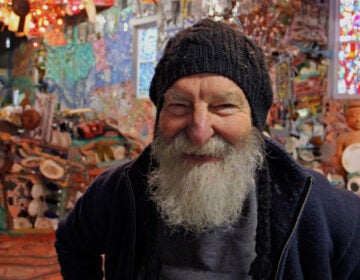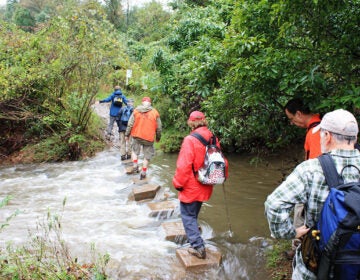Descendants of Civil War soldiers re-enact Philadelphia march
On April 15, 1861, President Abraham Lincoln asked for 75,000 volunteers from the Union to defend Washington, D.C. Many who heeded the call traveled through Philadelphia on their way to the capital.
Civil war re-enactors will converge in Philadelphia Saturday, 150 years later, to once again muster for their president.
To mark the beginning of a five-year sesquicentennial celebration, a parade of men in historical uniform will begin a the National Constitution Center, travel down Chestnut Street to Broad, then down Broad to Washington.
Many of the soldiers taking part in the re-enactment will be African-American; some are descendants of actual black Civil War soldiers.
But there’s a problem of absolute fidelity to history: black men would not have been part of this initial call to arms in 1861.
“Most white Northerners would not have gotten along with arming black men,” said Gregory Urwin, a history professor at Temple University. “That was considered dangerous–how can you maintain slavery if you are going to allow blacks to carry arms? The Union was not ready to part with slavery at that time, they wanted to preserve the Union as it was in 1860.”
Eventually, black men were allowed to enlist, but not until the war had exhausted almost all other options. In 1863 the Union established the largest training ground for African-American soldiers–called Camp William Penn–just outside of Philadelphia, near Elkins Park.
Hundreds of African-American volunteers trained there, many of them recently freed slaves, runaway slaves or the sons of slaves.
“For me it’s a great source of pride,” said Darlene Colon, who can trace her family tree to nine soldiers at Camp William Penn. “These were people risking their lives, because any black–they didn’t take prisoners as far as blacks. They would just as soon shoot them than take prisoners of war.”
The Saturday parade will begin at 10 a.m. and take two hours. Some streets will be closed to traffic.
WHYY is your source for fact-based, in-depth journalism and information. As a nonprofit organization, we rely on financial support from readers like you. Please give today.




